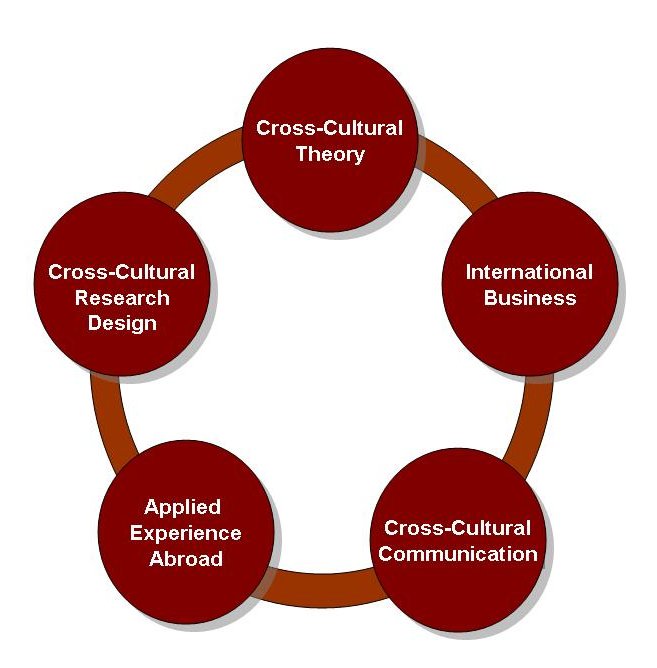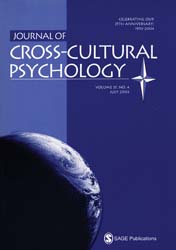
- March 27, 2021
- Anthropology, Education, Intercultural, Neuroscience, Psychology, Research Methodology
The main purpose of cross-cultural research in psychology and education is the elaboration of general and specific objectives to the cultures involved without distorting an articulate common goal. Generalizations, very common in social disciplines, must be supported empirically to satisfy the external validity of the conclusion. The advantage of the cross-cultural approach as compared with the single cultural research approach is that the possibilities for misinterpretation are less with the former. An intensive study of a single nation or culture provides rich insight into the society or culture as a functioning organism, but hardly permits any generalization to other societies or cultures or subcultures of the same nation.
John Whiting, a leading figure in psychological anthropology and a pioneer in the development of systematic cross-cultural research, states that the advantage of the cross-cultural method are twofold: 1) It insures that one’s findings relate to human behavior in general rather that being bound to a single culture; and 2) It increases the range of variation of many variables.
On the other hand, the purpose of research using cross-cultural dimensions or  multinational comparisons can be divided into three types: 1) Confirming and exploring the universality of some relationship or attribute of social man; b) Natural experiments, in which regions differ in some environmental factor which can be studied using an experimental treatment; and c) maximum variability studies. This approach, using the cultural variable as the experimental treatment is one of the latest developments in the cross-cultural method.
multinational comparisons can be divided into three types: 1) Confirming and exploring the universality of some relationship or attribute of social man; b) Natural experiments, in which regions differ in some environmental factor which can be studied using an experimental treatment; and c) maximum variability studies. This approach, using the cultural variable as the experimental treatment is one of the latest developments in the cross-cultural method.
One of the necessary requirements to establish universal scientific laws is that the observed phenomena be applicable to all pertinent environments. In social and psychological disciplines, behavioral laws need to be tested against the universal human being. If this is not done, proposed behavioral laws or general goals can only be accepted in the particular society or culture in which they are found. For this reason, using abstract generalizations about some cultural groups without looking at their relationships with society is methodologically wrong and ethically inappropriate. To achieve this objective, the cross-cultural method as a part of the comparative approach is a meaningful tool for obtaining empirical data from the existing cultural and social system, the educational system and the complexity of human nature.
However, no discipline has a method which is only unique to itself. All disciplines are in fact using the same method, the scientific method. The logic of the formal scientific approach to knowledge of setting up a hypothesis, developing a technique, gathering the data and drawing conclusions and the informal scientific or qualitative approach involve only three different methods – historical, descriptive and experimental – but they all apply to the study of cultures in the comparative dimension. The methods differ from each other only to the extent that they serve different functions and thereby are guided by different techniques or interpretations.
When the cross-cultural research deviates from its scientific approach, it is dependent not upon its methodology, but upon its practitioners. In other words, while cross-cultural research can be considered to use a scientific methodology, not all practitioners of cross-cultural research are in fact, systematic scientists. Under this consideration we can operationally define cross-cultural research as the activity of solving problems cross-culturally; this process leads to new knowledge using the scientific method and the comparative technique which are currently accepted as adequate by scholars in the field.
not upon its methodology, but upon its practitioners. In other words, while cross-cultural research can be considered to use a scientific methodology, not all practitioners of cross-cultural research are in fact, systematic scientists. Under this consideration we can operationally define cross-cultural research as the activity of solving problems cross-culturally; this process leads to new knowledge using the scientific method and the comparative technique which are currently accepted as adequate by scholars in the field.
Today, the area of qualitative and quantitative cross-cultural research has been expanded to many different social and behavioral fields. There are a very important number of professional associations dealing with comparative studies and cross-cultural dimensions and journals in such disciplines which covers a substantial amount of cross-cultural studies. In addition, some of those periodicals only accepts studies which do more than just compare two or more cultures. Dependent variables must be linked statistically to one or more independent variables that are also measured. This is a very important issue because an observed difference could be the result of any other difference or complex casual interactions between or among the cultures compared. To the linear models of the past and with the more sophisticated techniques and research tools of today, cross-cultural research is moving towards more complex designs. These non-linear designs focus on holistic concepts rather than on fragmented perspectives; they are more concern with interactive effects between variables than with isolated variables themselves.
This is the first of several articles on this nature that I will be writing in regard to the strengths and  limitations of comparative studies and cross-cultural research methodology in human sciences. Is it correct to label as a comparative study when a researcher analyzes only another country or culture that is not his or her? Can you label a cross-cultural study by only studying one culture or sub-culture? Is cross-cultural approach the same that cross-national? How do we measure multicultural entities in regard to intercultural processes? How we compare social learning with cultural learning? How ethnicity relates to cultural identity? How neuroscience contributes to understand cultural cognition? How do we increase diversity by achieving unity? Some of my posts will analyze the use and misused of these concepts and their applications to labeling cultural groups in The United States as anglo-americans, african-americans, caucasian european, asian-americans or hispanics, as well as religious labels based on beliefs or economical constructs as north/south or developed/underdeveloped.
limitations of comparative studies and cross-cultural research methodology in human sciences. Is it correct to label as a comparative study when a researcher analyzes only another country or culture that is not his or her? Can you label a cross-cultural study by only studying one culture or sub-culture? Is cross-cultural approach the same that cross-national? How do we measure multicultural entities in regard to intercultural processes? How we compare social learning with cultural learning? How ethnicity relates to cultural identity? How neuroscience contributes to understand cultural cognition? How do we increase diversity by achieving unity? Some of my posts will analyze the use and misused of these concepts and their applications to labeling cultural groups in The United States as anglo-americans, african-americans, caucasian european, asian-americans or hispanics, as well as religious labels based on beliefs or economical constructs as north/south or developed/underdeveloped.
I will argue that many of these labels have contributed to see the container but not its content. It has provided the growth of nationalistic attitudes, selfish behaviors and the reproduction of fanaticisms. It has simplified a very intricate psychological construct as a derivation of the human development complexity and the human being’s search for freedom and dignity.
©2018-2021 Miguel Angel Escotet. All rights reserved. Permission to reprint with appropriate citing.